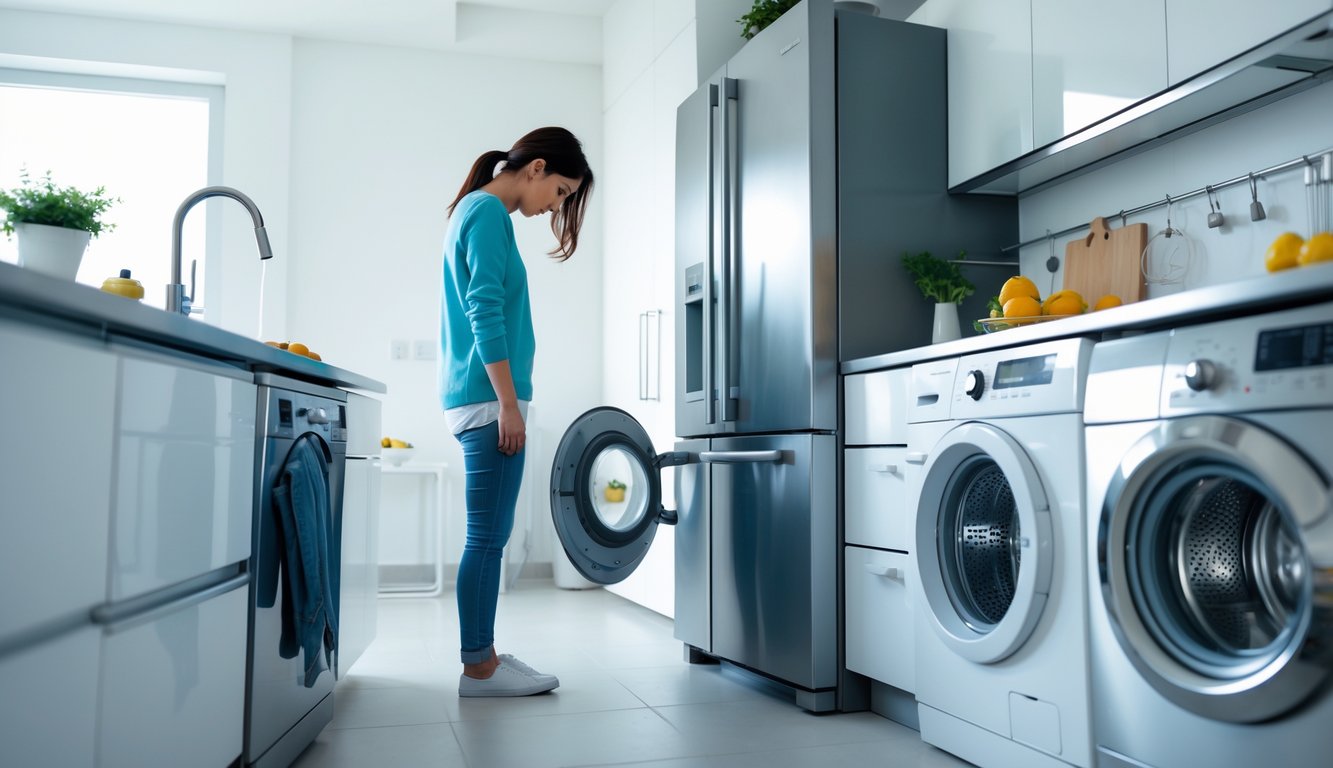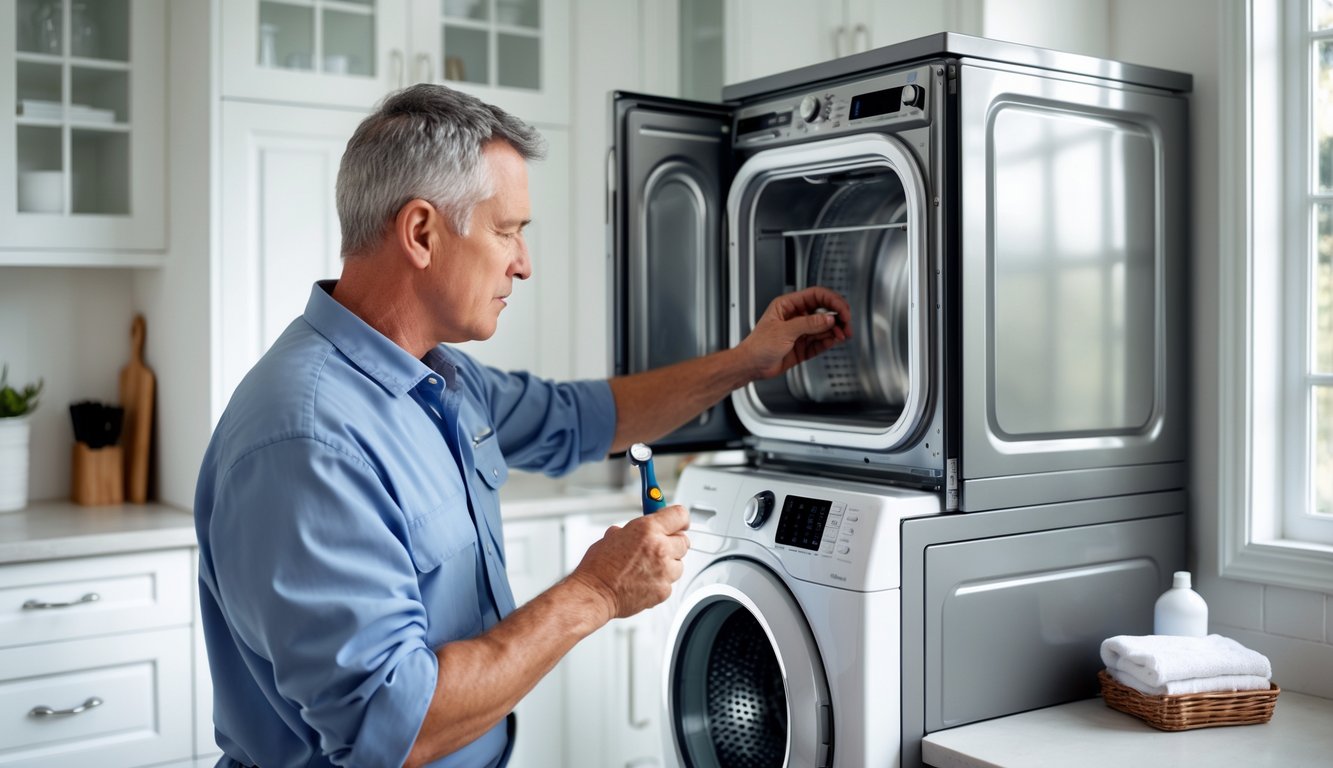
Maintenance: The Surprising Culprit

Another morning, another blinking coffee machine. The fridge is making a weird noise. I keep coming back to this: it’s not always bad engineering. It’s us. Lack of maintenance, tiny ignored stuff—those are the real killers. Even the “handy” people I know skip half the routine stuff, or just wipe the outside and call it good.
Regular vs. Routine Maintenance
“Regular maintenance” is everywhere in the manuals. But does anyone actually do it? I used to just wipe down the front and move on. Turns out, real maintenance means checking seals, recalibrating, running diagnostics, and dragging the fridge out to vacuum the coils. (Yes, boring, but apparently it matters—a lot.) Lauren Davis, a repair tech, told me most people never maintain their stuff at the right intervals. She pointed to a 2019 study: washers that only got surface-level cleaning died eight years early. Meanwhile, my neighbor’s dishwasher is still alive after 15 years. He descaled it every quarter. I don’t even know what descaling is.
But honestly, who has time? Try replacing an oven thermostat before it fails—most people don’t even know where it is. Newer models have even more electronics, so if you skip calibration or don’t notice it’s unlevel, you lose years. Why don’t appliance brands shout about this? Probably because then we’d stop buying new stuff every eight years.
Neglecting Small Repairs
It’s always the little things. Torn door gaskets, weird rattles. Over half the ovens tossed in Norway still work (European study, 2024), but people get annoyed by quirks and just replace them. I once stuck a napkin behind a wobbly fridge shelf. It worked for a week. Then the repair cost tripled. One tiny crack in a drip pan, and suddenly there’s mold everywhere.
Repair pros love to point out cheap fixes—“Here’s a $10 filter, or pay $200 for a new part later.” It’s not glamorous, but keeping a list of little issues actually helps. My dad always said, “Ignore a whining compressor, start shopping for a new fridge.” There’s this whole “right to repair” thing—Matt Zieminski is always posting about it—and they’re right: if we actually knew what was breaking, we’d waste way less. But most people don’t notice until it’s too late. It’s weird how a tiny leak turns into a full-blown replacement, always at the worst possible time.
The Role of Users in Appliance Longevity
You ever toss a damp sock behind the dryer or leave a noodle on the stove? Feels harmless, right? It’s not. These tiny mess-ups chip away at your appliances’ lifespan. And no, I’m not even talking about the whole “change your filters” debate yet. Replacement costs keep creeping up, and—honestly—most of it’s on us. Our habits just keep grinding down stuff that’s already fighting to survive.
Daily Habits That Damage Major Appliances
Let’s be real. I cram the dishwasher past the rack lines every week. A GE tech told me that blocks the jets and wears out the pump faster. The fridge? I never clean the coils, so toast crumbs and hair ties just pile up. EnergyStar said dirty condenser coils are the #2 reason fridges die early. It takes three minutes to vacuum them. Three!
I run the dryer twice because I forget about the first load. That nukes the heating element—had to replace it twice already. Laundry detergent? Apparently, I use twice as much as I should, and that wrecks bearings and gums up the sensors. Found out after a $250 repair. “Use less, wipe gaskets, vent your appliances,” says the one repair specialist I actually trust. Leaving the oven or fridge door open wastes energy and kills thermostats sooner. Parts distributors hate it, but it’s true. And yet, I’ll probably do it again tomorrow.
Recognizing Signs of Wear Early
Honestly, I never noticed the weird hum from my dishwasher until it got loud enough to drown out my podcast. Apparently, that sound isn’t just “character”—the manual (which, let’s be real, I skimmed once and lost) says a recurring start-up noise could mean the actuator motor’s about to give up. Leave it, and suddenly you’re staring at a $400 repair bill. Supposedly, there’s research—yeah, real studies, like “Appliance Lifespan: Reasons for Change Over Time” (2024, if you care)—that blames people like me for not catching tiny alerts, which, fine, I doubted until my oven display fizzled out of nowhere.
Does a flicker on the display even count as a warning? Sometimes, my oven just glitches after I go overboard with cleaner. But then I asked a Bosch tech, and he goes, “intermittent power loss, corrosion or loose contact—ignore it and you’re buying a new board.” Not exactly reassuring. And don’t get me started on my freezer gasket—never seals, always frosts up. I could fix it for fifteen bucks, but… eh, I put it off. Then the compressor groans, and suddenly it’s “congrats, buy a new fridge.” Why is it so hard to spot these things early? Who wants to schedule maintenance? Not me. But, every time I skip it, I end up paying more, either for some random part that’s backordered or just replacing the whole thing out of frustration.